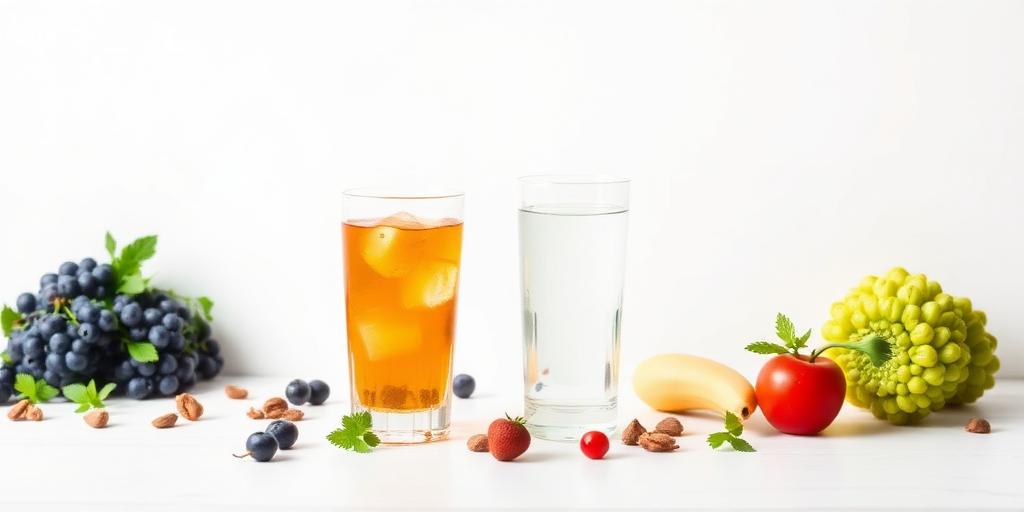The Impact of Alcohol on Nutrition and Hydration
Alcohol consumption can significantly impact both nutrition and hydration. Understanding these effects is crucial for making informed decisions about alcohol intake and maintaining overall health.
Alcohol's Impact on Nutrient Absorption
Alcohol can interfere with the body's ability to absorb essential nutrients. This occurs through several mechanisms:
- Damage to the Digestive Tract: Alcohol can irritate and damage the lining of the stomach and intestines, reducing the surface area available for nutrient absorption.
- Reduced Enzyme Secretion: Alcohol can inhibit the secretion of digestive enzymes from the pancreas, which are necessary for breaking down food into absorbable components.
- Impaired Nutrient Transport: Alcohol can interfere with the transport of nutrients across the intestinal lining and into the bloodstream.
Specific Nutrients Affected:
- Vitamin B1 (Thiamine): Alcohol inhibits thiamine absorption and utilization, leading to deficiency, which can cause neurological problems.
- Folate: Alcohol interferes with folate absorption and increases its excretion, contributing to folate deficiency.
- Vitamin B12: Chronic alcohol consumption can impair vitamin B12 absorption, potentially leading to anemia and neurological issues.
- Fat-Soluble Vitamins (A, D, E, K): Alcohol can disrupt the absorption and storage of these vitamins, which are crucial for various bodily functions.
Alcohol and Hydration
Alcohol is a diuretic, meaning it increases urine production. This can lead to dehydration, as the body loses fluids at a faster rate than normal.
- Inhibition of Vasopressin: Alcohol suppresses the release of vasopressin, a hormone that helps regulate fluid balance by reducing urine output. When vasopressin is inhibited, the kidneys excrete more water, leading to dehydration.
- Electrolyte Imbalance: Dehydration caused by alcohol can also lead to an imbalance of electrolytes, such as sodium and potassium, which are essential for nerve and muscle function.
Symptoms of Dehydration:
- Thirst
- Headache
- Dizziness
- Fatigue
- Dry Mouth and Skin
Practical Tips for Mitigating the Effects
To minimize the negative impacts of alcohol on nutrition and hydration:
- Moderate Consumption: Limit alcohol intake to moderate levels, as defined by health guidelines (e.g., up to one drink per day for women and up to two drinks per day for men).
- Stay Hydrated: Drink plenty of water before, during, and after alcohol consumption to counteract its diuretic effect.
- Nutrient-Rich Diet: Consume a balanced diet rich in essential nutrients to compensate for potential absorption issues.
- Supplementation: Consider taking a multivitamin to address potential nutrient deficiencies, especially if you consume alcohol regularly (consult with a healthcare provider first).
- Avoid Drinking on an Empty Stomach: Eating before drinking can slow down alcohol absorption and reduce its impact on nutrient absorption.
Conclusion
Alcohol consumption can have significant effects on nutrition and hydration. By understanding these effects and taking proactive steps to mitigate them, individuals can make more informed choices about their alcohol intake and maintain better overall health. Moderation, proper hydration, and a nutrient-rich diet are key to minimizing the negative impacts of alcohol.









